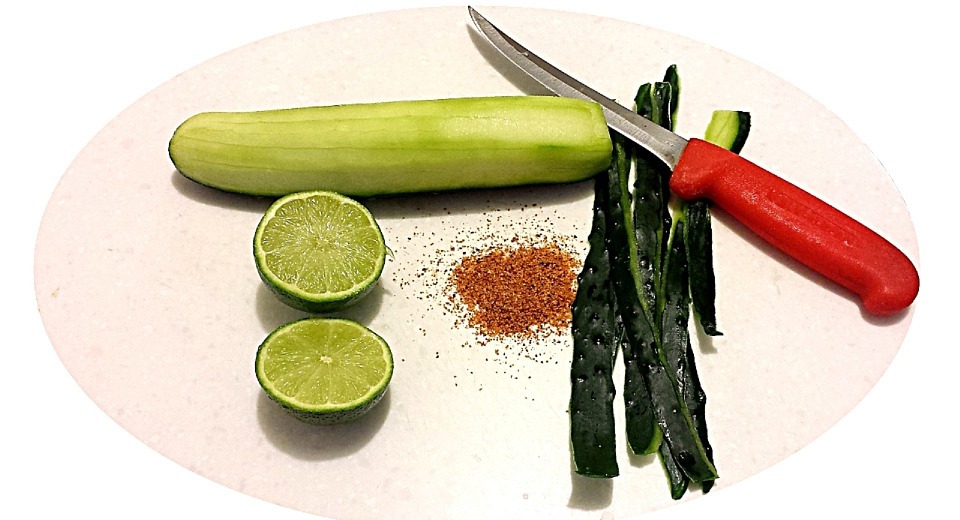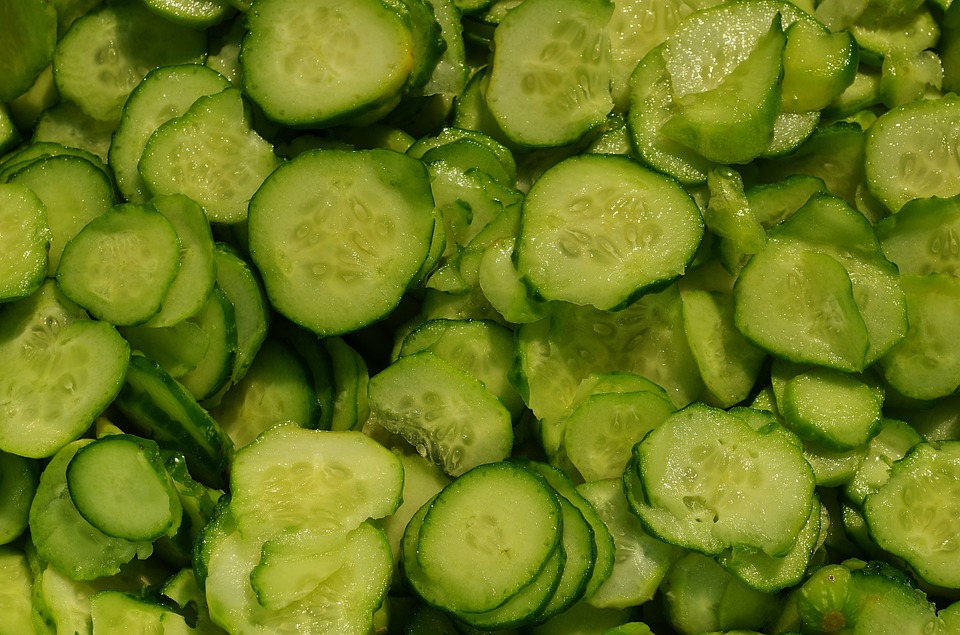This article provides a comprehensive guide to whether or not rabbits can eat cucumbers, exploring the nutritional value, safety considerations, and potential risks.
Part 1: Understanding Rabbit Nutrition

1.1. The Importance of a Balanced Diet
Rabbits are herbivores, and their diet should consist primarily of hay, fresh vegetables, and a small amount of pellets. A balanced diet is crucial for their overall health and well-being.
1.2. The Role of Hay in Rabbit Nutrition
Hay should make up the majority of a rabbit's diet, providing essential fibre for digestion, dental health, and overall gut health.
1.3. The Importance of Fresh Vegetables
Fresh vegetables are a vital source of vitamins, minerals, and antioxidants for rabbits. However, not all vegetables are safe for them, and it's important to choose those that are appropriate.
Part 2: Nutritional Value of Cucumbers for Rabbits

2.1. Water Content and Hydration
Cucumbers are approximately 96% water, making them a potentially good source of hydration for rabbits, particularly in hot weather or during digestive issues.
2.2. Vitamin and Mineral Content
While cucumbers offer minimal nutritional value compared to other vegetables, they contain small amounts of:
- Vitamin K: Important for blood clotting.
- Vitamin C: An antioxidant that supports immune function.
- Potassium: Essential for muscle function and fluid balance.
- Magnesium: Plays a role in bone health and energy production.
2.3. Fibre Content
Cucumbers contain a moderate amount of dietary fibre, contributing to healthy gut bacteria and aiding digestion in rabbits.
Part 3: The Risks of Feeding Cucumbers to Rabbits
3.1. High Water Content and Digestive Upset
The high water content in cucumbers can disrupt a rabbit's delicate digestive system, especially if consumed in excess. This can lead to diarrhoea and dehydration.
3.2. Pesticides and Herbicides: A Serious Threat
Cucumbers grown conventionally may contain harmful pesticides and herbicides, posing a significant risk to rabbits' health. Always opt for organic cucumbers.
3.3. Sugar Content and Potential Health Concerns
Cucumbers contain a small amount of sugar, which can be problematic for rabbits with diabetes or other health conditions. It is best to limit their intake.
3.4. Seeds and Skin: Digestive Challenges
The seeds and skin of cucumbers can be difficult for rabbits to digest, potentially causing digestive issues. Remove these before offering cucumbers.
Part 4: Safe Feeding Practices for Cucumbers
4.1. Moderation is Key: A Treat, Not a Staple
Cucumbers should be offered as an occasional treat, not as a regular part of a rabbit's diet. A small slice or two is generally sufficient.
4.2. Choose Organic: Prioritise Safety
Always select organic cucumbers to minimise exposure to harmful pesticides and herbicides.
4.3. Wash Thoroughly: Cleanliness is Essential
Wash cucumbers thoroughly under running water to remove any dirt or residues before feeding them to your rabbit.
4.4. Remove Seeds and Skin: Prevent Digestive Problems
Remove the seeds and skin of cucumbers before offering them to your rabbit to avoid digestive issues.
4.5. Introduce Gradually: Monitor for Reactions
When introducing cucumbers for the first time, start with a small amount and observe your rabbit's reaction. Monitor for signs of digestive upset.
4.6. Observe for Signs of Digestive Distress: Early Intervention
Watch your rabbit closely for signs of digestive upset such as diarrhoea, lethargy, loss of appetite, or changes in stool consistency. If you notice any of these symptoms, stop feeding cucumbers and consult your vet.
Part 5: Alternatives to Cucumbers for Rabbits
5.1. Other Safe and Nutritious Vegetables
There are numerous other vegetables suitable for rabbits, including:
- Bell peppers
- Broccoli
- Carrots
- Celery
- Spinach
- Kale
- Parsley
- Cilantro
5.2. Fresh Herbs: A Source of Flavor and Nutrients
Many fresh herbs are safe for rabbits to consume, including:
- Basil
- Mint
- Dill
Part 6: What to Do if Your Rabbit Eats a Cucumber
6.1. Monitor for Symptoms: Pay Close Attention
If your rabbit has eaten a cucumber, observe them closely for any signs of digestive upset such as diarrhoea, lethargy, or loss of appetite.
6.2. Provide Fresh Water: Promote Hydration
Ensure your rabbit has access to plenty of fresh water, as cucumbers are hydrating.
6.3. Consult Your Vet: Seek Professional Advice
If you notice any concerning symptoms, consult your vet immediately for professional guidance.
Part 7: Frequently Asked Questions (FAQs)
7.1. Can baby rabbits eat cucumbers?
It's best to avoid feeding cucumbers to baby rabbits as their digestive systems are still developing, and they are more susceptible to digestive issues.
7.2. Can rabbits eat cucumber peels?
Cucumber peels should be avoided as they can be difficult for rabbits to digest.
7.3. How often can rabbits eat cucumbers?
Cucumbers should be offered as an occasional treat, no more than once or twice a week.
7.4. Can rabbits eat pickled cucumbers?
Pickled cucumbers are not safe for rabbits. They contain high amounts of vinegar, sugar, and salt, which can be toxic to rabbits.
7.5. Can rabbits eat cucumber leaves?
Cucumber leaves are generally safe for rabbits to eat in moderation, but they should be washed thoroughly and offered as a treat.
7.6. Can rabbits eat cucumber flowers?
Cucumber flowers are safe for rabbits to eat in moderation, but they are not as nutritious as other parts of the plant.
7.7. Can rabbits eat cucumber plants?
It is generally not recommended to feed rabbits cucumber plants, as they may contain pesticides or herbicides.
7.8. Are there specific types of cucumbers better for rabbits?
While there are no specific cucumber varieties ideal for rabbits, choose organic cucumbers to minimise pesticide exposure.
7.9. What is the best way to store cucumbers for rabbits?
Store cucumbers in the refrigerator to maintain freshness and prevent spoilage.
Conclusion:
Cucumbers can be offered to rabbits as an occasional treat in moderation, but it's crucial to prioritize safety and monitor for digestive issues. Providing a balanced diet consisting primarily of hay, fresh vegetables, and a small amount of pellets remains the most important aspect of rabbit care.
Everyone is watching
-

Do Rabbits Lay Eggs? (The Surprising Truth)
OTHER TYPES OF PETSThis article will unravel the common misconception that rabbits lay eggs, exploring the fascinating world of r...
-

Can Rabbits Eat Grapes? A Guide to Safe Rabbit Treats
OTHER TYPES OF PETSThis comprehensive guide will explore the safety and suitability of grapes for rabbits, providing detailed inf...
-

What's a Group of Rabbits Called? (A Comprehensive Guide)
OTHER TYPES OF PETSThis article delves into the fascinating world of rabbits, exploring the various terms used to describe a grou...
-

Predators That Hunt Rabbits: A Guide to Natural Enemies
OTHER TYPES OF PETSI've always been fascinated by the circle of life, that delicate dance between predator and prey. Growing up ...
-

Are Rabbits Nocturnal Animals?
OTHER TYPES OF PETSThe question of whether rabbits are nocturnal animals is a fascinating one, with a surprisingly complex answer...
